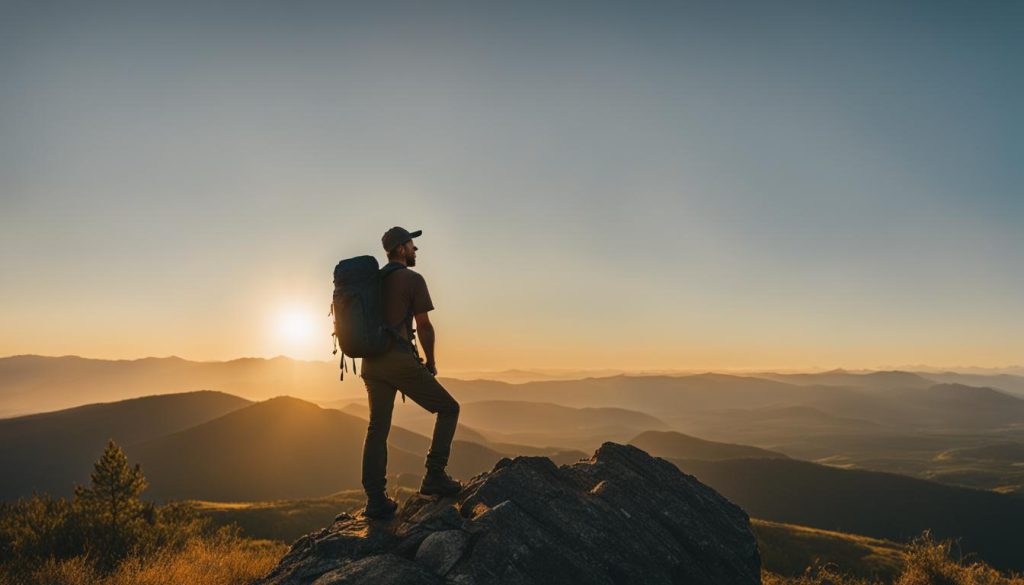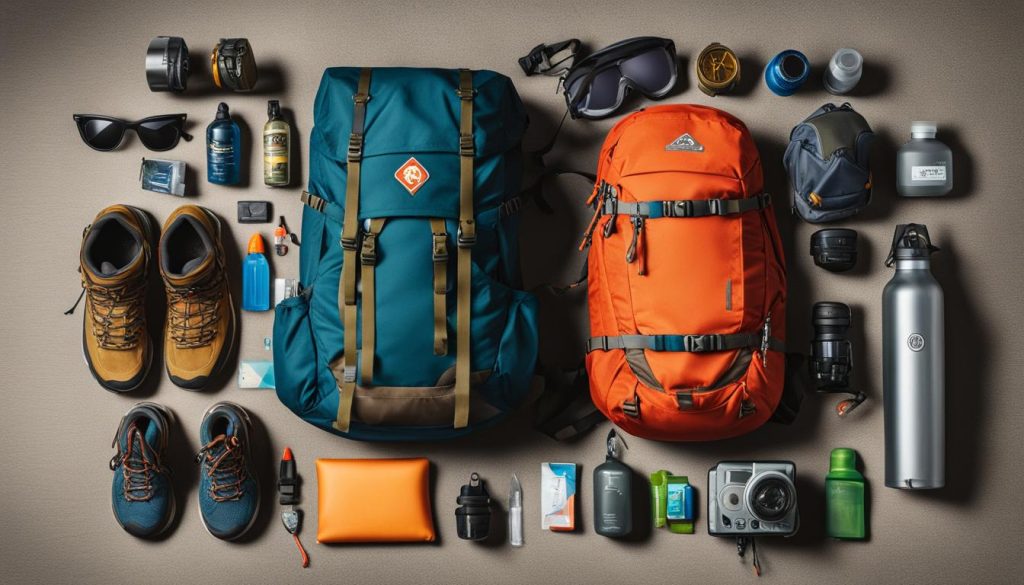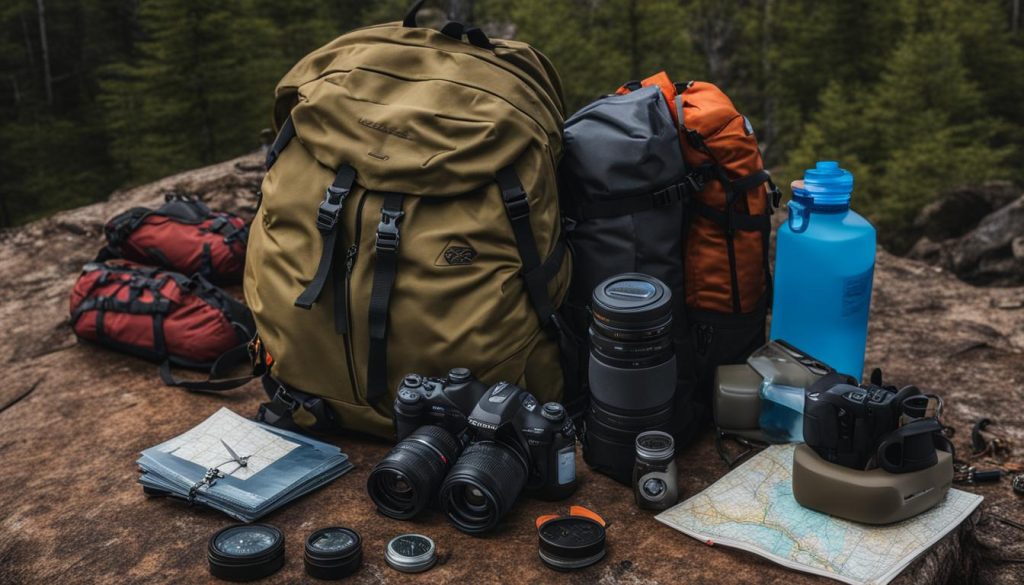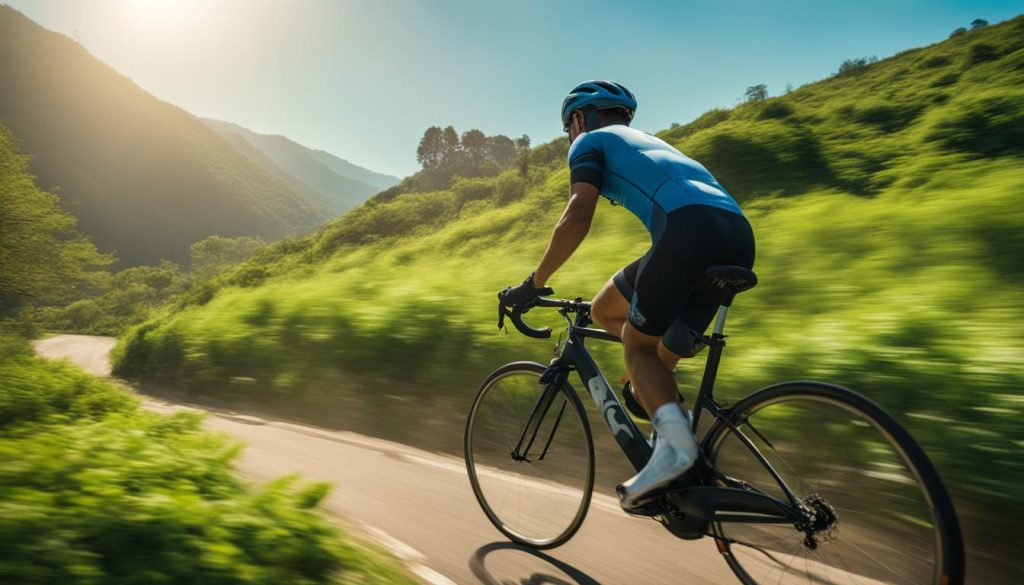Are you ready to embark on a new adventure and connect with nature? Hiking is the perfect activity for beginners who want to explore the great outdoors while staying active and healthy. Whether you’re looking for hiking tips, essential gear, beginner-friendly trails, or safety advice, this guide will help you kick-start your hiking journey. So lace up your shoes, grab your backpack, and let’s get started!
Key Takeaways:
- Follow proper hiking etiquette and practices, such as leaving no trace and being considerate of other hikers.
- Choose beginner-friendly hikes under 5 miles with minimal climbing to avoid overexertion.
- Utilize resources like trail guides, websites, and hiking guidebooks to find suitable trails.
- Wear appropriate clothing and pack essential items for safety and comfort.
- Start early to avoid crowds, check weather and trail conditions, and notify someone of your hiking plans.
Hiking for Fitness: Physical and Mental Health Benefits
When it comes to physical and mental health, hiking is a fantastic activity that offers numerous benefits. Not only does it provide a low-impact cardio and muscle workout, but it also helps to lower the risk of heart disease, improves blood pressure, and aids in weight control. Hiking allows you to connect with nature while engaging in a fulfilling exercise routine.
One of the great things about hiking is that it can be tailored to your fitness level. By gradually increasing the distance of your hikes over time, you can build endurance and stamina. Incorporating exercises that target core and back muscles, such as squats, lunges, and planks, can further enhance the physical benefits of hiking.
In addition to the physical advantages, hiking also has a positive impact on mental well-being. It has been shown to reduce anxiety, stress, and the risk of depression. Being active in nature allows you to disconnect from daily stressors and find a sense of calm and mindfulness. The beauty of the natural surroundings can help put things into perspective and allow you to fully immerse yourself in the present moment.
Joining hiking groups or walking clubs
can provide social support and the opportunity to meet like-minded individuals who share a love for hiking. Connecting with others who enjoy the outdoors can be a great way to stay motivated and explore new hiking trails together. It’s also a chance to learn from more experienced hikers and exchange tips and advice.
Hiking is a holistic activity that contributes to improved overall physical and mental well-being. So lace up your hiking boots, pack your backpack, and hit the trails to experience the many benefits that hiking has to offer!

Essential Steps to Start Hiking
Embarking on your hiking journey can be an exciting and fulfilling experience. To ensure a successful hike, it’s important to take some essential steps.
First and foremost, finding a hiking partner can enhance your hiking experience. Whether it’s a friend, joining a walking group, or connecting with fellow hikers through social media, having someone to share the adventure with can add safety and enjoyment to your hikes.
Next, choosing a suitable hiking route is crucial. Consider factors such as the time you have available, your fitness level, distance, elevation gain, time of year, and weather conditions. Researching and selecting the right trail will help you have a more enjoyable and manageable hiking experience.
Equipping yourself with the right hiking gear is paramount for your safety and comfort. Invest in appropriate footwear like hiking boots or shoes to protect your feet. Wear quick-drying and moisture-wicking clothing to stay comfortable during your hike. A backpack to carry essential items and the Ten Essentials, which include a map, compass, headlamp, and first-aid kit, will ensure you are prepared for any situation.
Lastly, prioritize your personal health and safety. Educate yourself on basic first aid skills and carry a first-aid kit. Be aware of your limitations and hike within your comfort zone. Inform someone of your hiking plans and always practice leave-no-trace principles to preserve the beauty of nature.
FAQ
What hiking trails are suitable for beginners?
It’s recommended to choose beginner-friendly hikes that are under 5 miles with minimal climbing to avoid overexertion.
How can I find suitable hiking trails?
You can utilize resources like trail guides, websites, and hiking guidebooks to find hiking trails that match your skill level and preferences.
What should I wear for hiking?
It’s best to wear wicking workout clothes and comfortable shoes like sneakers or trail runners for hiking.
What essential items should I pack for a hike?
It’s important to pack a backpack, water, snacks, and extra layers for changing weather conditions when going on a hike.
How can I navigate on a hike?
You can navigate using a combination of electronic navigation tools, like GPS apps, and paper maps to ensure you stay on the right trail.
What time should I start hiking?
It’s recommended to start hiking early to avoid crowds and to check the weather and trail conditions before you go.
How can hiking benefit my physical health?
Hiking provides a low-impact cardio and muscle workout, helps to lower the risk of heart disease, improves blood pressure, and aids in weight control.
How can hiking benefit my mental health?
Hiking reduces anxiety, stress, and the risk of depression. It allows you to disconnect from daily stressors and find a sense of calm and mindfulness in nature.
How can I meet other hikers?
Joining hiking groups or walking clubs can provide social support and the opportunity to meet like-minded individuals who share a love for hiking.
How can I improve my hiking endurance?
Gradually increasing the distance of your hikes over time and incorporating exercises that target core and back muscles can help build endurance and stamina for hiking.
What should I consider when choosing a hiking route?
When choosing a hiking route, consider factors such as the time you have available, your fitness level, distance, elevation gain, time of year, and weather conditions.
What gear do I need for hiking?
You should have appropriate footwear like hiking boots or shoes, quick-drying and moisture-wicking clothing, a backpack to carry essential items, and the Ten Essentials for safety and preparedness.
What should I do to prioritize personal health and safety?
Be aware of your limitations, hike within your comfort zone, and inform someone of your hiking plans to prioritize your personal health and safety.
How can I practice proper bathroom etiquette while hiking?
It’s important to educate yourself on leave-no-trace principles, including burying waste and proper waste disposal, to ensure you practice proper bathroom etiquette while hiking.
What should I keep in mind during a hike?
Remember that hiking is not a race. It’s important to pace yourself, conserve energy, and enjoy the journey.



